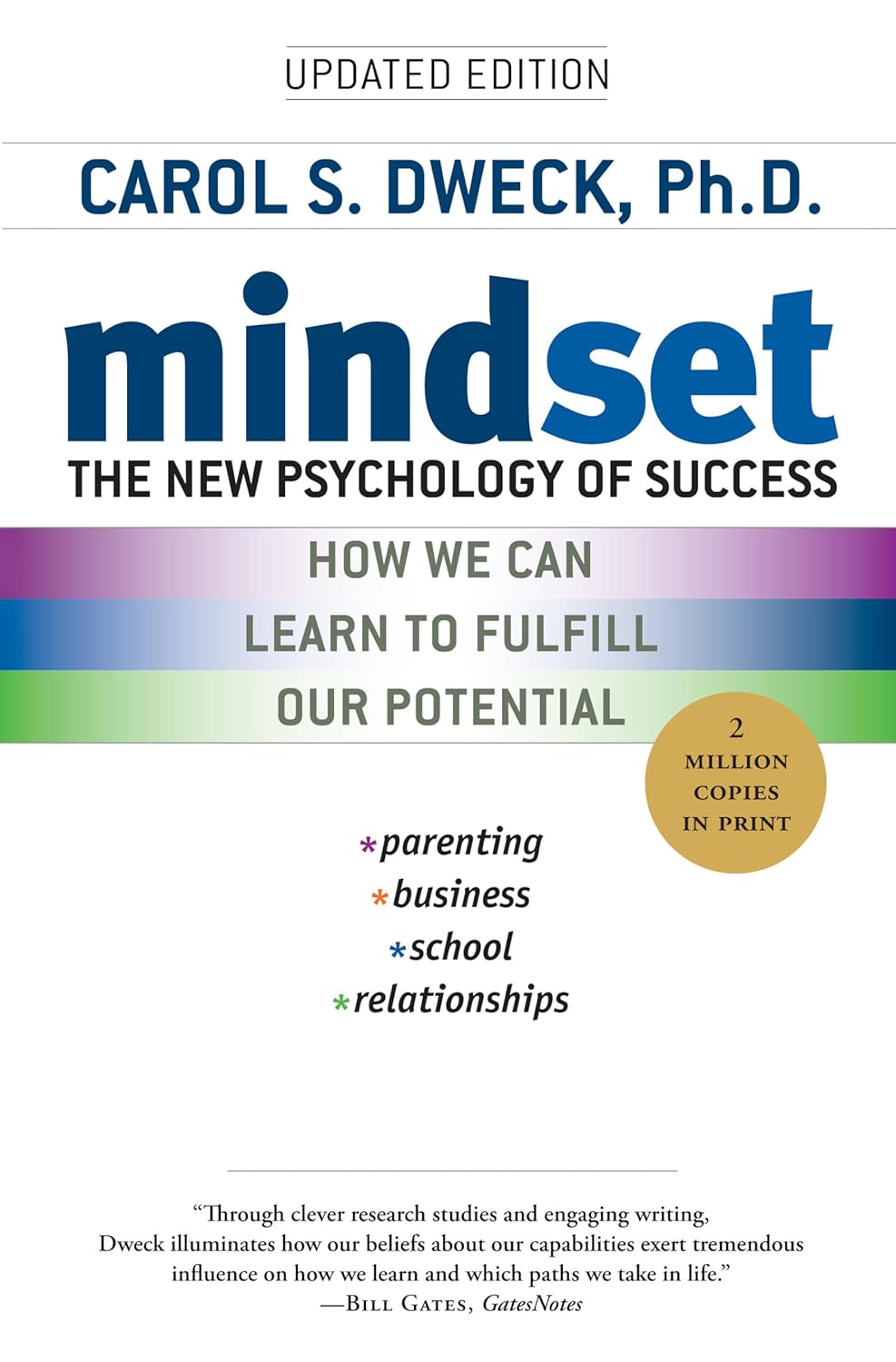
Essential Tips for Excelling in Your First Job
How to Thrive in Your First Job and Set the Foundation for a Promising Career
published: Friday, April 19, 2024
Landing your first job is an exciting milestone, but it can also feel daunting. Don't worry – with the right mindset and a few essential tips, you'll be well-equipped to survive and thrive in your new workplace. In this article, we'll delve into practical advice on excelling in your first job and laying the groundwork for a successful career. We've got you covered, from mastering basic skills to navigating office dynamics. So, let's roll up our sleeves and dive into the essential strategies to set you on the path to success.
Mastering Basic Skills
Mastering basic skills is the cornerstone of success in any career. With your first job, it's crucial to recognize the significance of these foundational abilities. These skills are the building blocks upon which you can construct a solid professional reputation and confidently navigate many challenges. From communication and time management to problem-solving and teamwork, honing these essential competencies will set you apart and position you for long-term success.
Communication reigns supreme when it comes to basic skills. Whether effectively conveying ideas in meetings, composing professional emails, or actively listening to colleagues, strong communication skills are invaluable in any workplace setting. Additionally, demonstrating proficiency in time management by prioritizing tasks, meeting deadlines, and efficiently organizing your workload showcases reliability and professionalism. Furthermore, displaying adaptability and a willingness to learn new technologies or procedures highlights your versatility and readiness to tackle evolving demands.
Continuous improvement is the key to staying ahead in your career journey. Take proactive steps to enhance your skillset by seeking learning opportunities through formal training programs, online courses, or mentorship relationships. Embrace feedback as a tool for growth and leverage constructive criticism to refine your abilities. By adopting a growth mindset and committing to ongoing development, you'll strengthen your existing skills and acquire new ones, ensuring your relevance and resilience in today's dynamic workforce.
Our Favorite
"The First 90 Days: Proven Strategies for Getting Up to Speed Faster and Smarter" by Michael D. Watkins
Job transitions can make or break a career. Michael D. Watkins' acclaimed guide offers indispensable strategies for navigating these critical moments, recognized as one of Amazon's top 100 Leadership & Success Books. With practical insights and tools, this updated edition empowers you at all levels to conquer challenges, secure early wins, and set the stage for long-term success. Whether you're stepping into a new role or aiming for the C-suite, this book is your essential companion for thriving in transitions.

Polishing Your Professional Mannerisms
When entering the workforce for the first time, it's vital to understand the weight of first impressions. These initial moments can shape perceptions and set the tone for professional interactions. In your new role, remember that your demeanor, appearance, and behavior all contribute to forming these crucial first impressions. By presenting yourself confidently, demonstrating respect, and showcasing your professionalism from the outset, you lay a solid foundation for positive relationships and future success.
In many cultures, the handshake is the universal symbol of greeting and respect. Mastering the art of a firm handshake conveys confidence and establishes an immediate connection with others. Similarly, maintaining appropriate eye contact during conversations demonstrates attentiveness, sincerity, and mutual respect. Understanding the cultural nuances surrounding these gestures is essential, as they vary across different regions and industries. You signal your awareness and adaptability by adhering to the accepted norms in your workplace environment, further enhancing your professional image.
Effective communication is at the heart of professional success. Whether engaging in face-to-face conversations, virtual meetings, or written correspondence, maintaining professionalism is paramount. This entails articulating your thoughts clearly, listening attentively to others, and fostering open dialogue while remaining courteous and respectful at all times. By mastering the art of effective communication, you convey your ideas with clarity and build trust and credibility among your peers and superiors. As you navigate your first job, remember that polished professional mannerisms are not just about appearances; they reflect your commitment to excellence and integrity in all aspects of your work.
Crafting Your Professional Image
Crafting a professional image is essential as you embark on your career path. Your appearance and demeanor define how you are perceived in the workplace. Dressing for success doesn't just mean wearing the latest fashion trends; it's about understanding and adhering to the dress code and cultural norms of your specific job environment. Whether it's business casual attire or a formal dress code, dressing appropriately demonstrates respect for your role and the company's values. By presenting yourself in a polished and professional manner, you command respect and instill confidence in your abilities.
Personal grooming is another aspect of your professional image that should not be overlooked. Maintaining good hygiene and grooming habits enhances your physical appearance and reflects your attention to detail and self-care. Simple practices such as regular haircuts, neatly trimmed nails, and clean attire contribute to a well-groomed appearance. Additionally, paying attention to personal grooming signals professionalism and respect for yourself and those around you.
Body language can speak volumes about your confidence and competence. From maintaining good posture to using appropriate gestures, your body language communicates nonverbal cues that can either enhance or detract from your professional image. Make eye contact when speaking with others, offer a firm handshake, and avoid slouching or fidgeting during meetings. By mastering positive body language, you project confidence and credibility, reinforcing the impression of professionalism that you strive to convey in every interaction.
Lorem ipsum dolor sit amet, consectetur adipiscing elit, sed do eiusmod tempor incididunt ut labore et dolore magna aliqua. Cum sociis natoque penatibus et magnis dis parturient montes nascetur. Quis viverra nibh cras pulvinar mattis nunc sed. At consectetur lorem donec massa sapien. Sit amet tellus cras adipiscing enim eu turpis. Tincidunt lobortis feugiat vivamus at augue eget arcu. Sed egestas egestas fringilla phasellus faucibus scelerisque eleifend donec.
Our Favorite
"Getting Things Done" by David Allen
Unlock the secrets to stress-free productivity with the revised edition of a blockbuster bestseller from personal productivity guru David Allen. Getting Things Done (GTD) has reshaped the way professionals and individuals approach tasks, creating a culture of productivity tools and seminars. In this updated version, Allen adds fresh perspectives for the new workplace, making the book relevant for years to come. Whether you're a longtime fan or a new adopter, dive into the proven principles of GTD and transform your approach to organization and productivity. A must-read for anyone eager to boost efficiency and effectiveness.

Organizing Your Work Effectively
Organizing your work effectively is essential for success in your first job. With multiple tasks and deadlines, prioritizing your workload and managing your time efficiently is critical. Start by identifying the most important tasks and deadlines, then create a plan to tackle them in order of priority. This approach helps you stay focused and ensures that you allocate your time and energy to tasks that have the greatest impact on your job performance.
Utilizing organizational tools can significantly streamline your workflow and enhance productivity. Whether it's a digital task management app, a physical planner, or a combination, find tools that work best for you and incorporate them into your daily routine. These tools can help you track deadlines, set reminders, and break down larger projects into manageable steps. By staying organized and proactive, you'll minimize the risk of overlooking important tasks and deadlines, allowing you to work more efficiently and effectively.
Establishing a productive workspace is essential for maintaining focus and maximizing your productivity. Set up your workspace in a way that minimizes distractions and promotes concentration. Keep your desk clutter-free, organize your materials and supplies, and personalize your space to make it comfortable and inviting. Additionally, consider lighting, ergonomics, and noise levels to create an environment that fosters productivity and creativity. By optimizing your workspace for efficiency, you'll create an environment for accomplishing your tasks and achieving your goals in your first job.
Navigating Manager Communication
Navigating communication with your manager, who is not your parent or teacher, is essential for success in your first job. Understanding your manager's expectations is crucial for aligning your efforts with organizational goals. Take the time to clarify your responsibilities, objectives, and performance metrics with your manager early on. By gaining a clear understanding of what is expected of you, you can prioritize your tasks and focus your efforts on activities that contribute to your manager's goals and objectives.
Seeking feedback and clarification is an important aspect of effective communication with your manager. Don't hesitate to ask questions or seek guidance when you encounter challenges or uncertainties. Your manager is there to support you and provide direction, so take advantage of their expertise and insights. Actively seek feedback on your performance and be open to constructive criticism. By demonstrating a willingness to learn and improve, you'll strengthen your professional skills and build trust and rapport with your manager.
Effectively communicating your progress and challenges keeps your manager informed and maintains accountability. Provide regular updates on your work, highlighting accomplishments, milestones, and any potential roadblocks or challenges you are facing. Be proactive in addressing issues and seeking solutions, and communicate any adjustments to your plans or timelines as needed. By keeping the lines of communication open and transparent, you demonstrate professionalism and accountability, setting the stage for a productive and successful working relationship with your manager.
Understanding Workplace Expectations
Understanding workplace expectations is essential for thriving in your first job. Aligning with the company's values and culture is fundamental to fitting in and contributing positively to the organization. Take the time to familiarize yourself with the company's mission, vision, and core values, and strive to embody these principles in your work. By aligning your actions with the company's values, you demonstrate your commitment to being a valuable team member and contributing to the organization's success.
Clarifying your job responsibilities and goals is critical for ensuring that you are meeting expectations and making meaningful contributions to your team and the organization. Take the initiative to discuss your role and responsibilities with your manager, and seek clarification on any areas that may be unclear. Set clear goals and objectives for yourself, and regularly review your progress with your manager to ensure that you are on track to meet or exceed expectations. Additionally, be open to feedback and willing to adapt to changes in your role or priorities. Embrace opportunities for growth and learning, and use feedback as a tool for continuous improvement. By staying flexible and receptive to feedback, you demonstrate your willingness to evolve and grow in your role, setting yourself up for success in your first job.
Building Positive Relationships with Coworkers
Building positive relationships with coworkers is essential for creating a supportive and productive work environment in your first job. Embracing teamwork and collaboration fosters synergy among team members and enhances the overall effectiveness of the group. Take the initiative to contribute to team projects, offer assistance to colleagues when needed, and celebrate shared successes. By working collaboratively with your coworkers, you contribute to team success and build rapport and trust with your colleagues, laying the groundwork for strong professional relationships.
Resolving conflicts professionally is an inevitable aspect of working in a team environment. When conflicts arise, approach them with a calm and rational demeanor, and seek to understand the perspectives of all parties involved. Listen actively, communicate respectfully, and focus on finding mutually beneficial solutions. Avoid placing blame or becoming defensive, and instead, work together to identify the root causes of the conflict and develop strategies for resolution. By handling conflicts with professionalism and maturity, you demonstrate your ability to navigate challenging situations and maintain positive relationships with coworkers. Additionally, fostering a supportive work environment involves showing empathy and compassion towards your colleagues, offering encouragement and assistance when needed, and creating a culture of mutual respect and appreciation. By fostering a sense of camaraderie and support among your coworkers, you contribute to a positive and uplifting work atmosphere where everyone can thrive and succeed.
Our Favorite
"Mindset: The New Psychology of Success" by Carol S. Dweck
Renowned psychologist Carol S. Dweck unveils the power of mindset in this updated edition of a bestselling classic. With transformative insights, Dweck redefines success, emphasizing lifelong resilience and self-improvement. Through engaging writing and research studies, she demonstrates how our beliefs about capabilities shape our learning and life paths. Praise from luminaries like Bill Gates underscores the book's impact. Dweck introduces the notion of false growth mindset and explores its ramifications, guiding readers toward a deeper understanding. Expanded to encompass group dynamics, the book offers practical strategies for parents, educators, and leaders to cultivate growth mindsets in others. Discover how adopting the right mindset can propel personal and collective achievement.

Continual Learning and Growth
Continual learning and growth are vital components of a successful career, especially in your first job. Embrace opportunities for learning and development, both within and outside the workplace. Attend training sessions, workshops, and seminars to expand your skills and knowledge in your field. Additionally, seek out online courses, podcasts, and industry publications to stay abreast of the latest trends and developments. By adopting a mindset of lifelong learning, you position yourself as a proactive and adaptable professional, ready to tackle new challenges and seize opportunities for advancement.
Seeking mentorship and guidance is another valuable strategy for fostering your professional growth. Identify experienced colleagues or industry professionals who can serve as mentors and advisors, providing insights, advice, and support as you navigate your career path. Don't be afraid to reach out and ask for guidance, and be receptive to feedback and constructive criticism. Meaningful relationships with mentors provides you with valuable perspective and wisdom that can help shape your career trajectory and accelerate your growth.
Developing a long-term career plan is essential for setting goals and charting a course for your professional development. Take the time to reflect on your aspirations, strengths, and areas for improvement, and create a roadmap that outlines your career objectives and the steps needed to achieve them. Set specific, measurable, and achievable goals, and regularly review and adjust your plan as your interests and priorities evolve. By having a clear vision for your future and taking deliberate actions to pursue your goals, you empower yourself to shape your career trajectory and achieve success in your first job and beyond.
Conclusion
Congratulations on taking the first step towards building your career! By implementing the essential tips outlined in this article, you're already ahead of the curve in your professional career. Remember, success in your first job is about mastering tasks and cultivating a positive attitude, strong work ethic, and continuous willingness to learn and grow. As you navigate the workforce, stay confident in your abilities and remain open to new experiences and challenges. With determination and perseverance, you're well on your way to building a fulfilling and rewarding career path. So, go forth, conquer your first job, and pave the way for a bright future ahead!